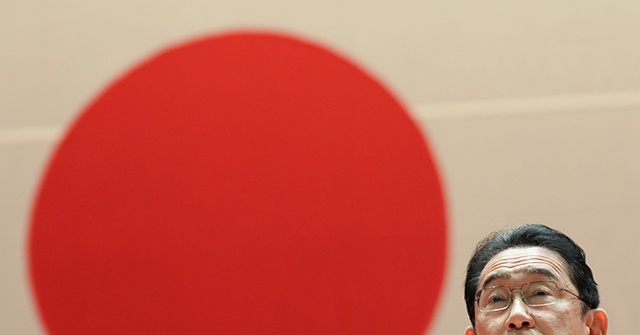The Wall Street Journal, citing a Japanese government source, claimed on Sunday that Japan is now buying Russian oil above the $60 per barrel cap imposed by the Group of Seven (G7) nations and Australia in December to keep Moscow from using massive oil profits to finance its invasion of Ukraine.
Japan is a G7 member and close ally of the United States that has vocally opposed the Russian invasion of Ukraine. Conservative Prime Minister Kishida Fumio made a surprise solidarity visit to Kyiv in March. While maintaining tense relations with Russia, Japan has been reluctant to cut off Russian energy products because it has heavily invested in some key projects, including the Sakhalin-2 liquefied natural gas fields in eastern Russia. Japan also hopes to diplomatically resolve territorial disputes with Moscow that date back to the end of World War II; Russia and Japan remain technically in a state of war, since they did not sign a peace treaty following the end of WWII hostilities.
SHOCK: Biden’s refusal to hold peace talks and insistence that his proxy war continue indefinitely has forced another ally to choose Russia over the U.S. Japan is breaking with the U.S. and will begin buying Russian oil at prices above the cap.https://t.co/cESfC055uL pic.twitter.com/6kDU5kKJ56
— @amuse (@amuse) April 3, 2023
An official of Japan’s Ministry of Economy, Trade and Industry said Tokyo wanted to ensure access to Sakhalin-2’s main product, natural gas, which is liquefied and shipped to Japan.
“We have done this with an eye toward having a stable supply of energy for Japan,” the official told the Wall Street Journal (WSJ) on Sunday.
Japan was granted a special exemption from the oil cap due to its extreme reliance on imported oil. Prices shot up dramatically on Monday after the Organization of the Petroleum Exporting Countries (OPEC) made a surprise announcement of production cuts, leaving benchmark Brent crude trading at $85 per barrel.
The Journal noted on Sunday that Japan has been the most reluctant of the G-7 nations to offer material support for Ukraine’s defense because it relies so heavily upon Russia for oil and natural gas.
“While many European countries have reduced their dependence on Russian energy supplies, Japan has stepped up its purchases of Russian natural gas over the past year. Japan is the only Group of Seven nation not to supply lethal weapons to Ukraine, and Prime Minister Fumio Kishida was the last G-7 leader to visit Ukraine after Russia’s invasion,” the WSJ observed.
The WSJ quoted some analysts who questioned the assumption that Japan’s economy could not survive without Russian energy products, noting that Europe’s industrial powerhouse German was importing 55 percent of its natural gas from Russia before the invasion of Ukraine, but has now reconfigured its imports to make do with zero Russian gas – and Germany’s economy outgrew Japan’s last year.
Kishida’s government insists it fully supports Ukraine and is ready to cooperate with sanctions on “Russia’s outrageous act” – as long as the oil keeps flowing. On Friday, Tokyo announced that Russia would remain stripped of its Most Favored Nation trading status for another year, keeping higher duties and tariffs on products other than oil, natural gas, and palladium. The Japanese parliament revoked Russia’s trade status for one year in April 2022.
“In the first two months of this year, Japan bought about 748,000 barrels of Russian oil for a total of ¥6.9 billion, according to official trade statistics. At the current exchange rate, that translates to $52 million, or just under $70 a barrel,” the WSJ reported.
“Russia exports millions of barrels of oil a day, making Japan’s purchases a minuscule share of total Russian output,” the report added.
Russia, which is an associate member of OPEC – usually denoted by referring to the organization as “OPEC+” – defended the production cuts and price hikes as sensible policy, a “precautionary measure aimed at supporting the stability of the oil market.”
“Whether other countries are happy with this or not is their business,” Kremlin spokesman Dmitry Peskov brusquely told reporters on Monday.
The surprising OPEC production cut declared on Sunday and taking effect in May technically did not involve Russia. The Russians, however, announced their own production cut of 500,000 barrels per day in February, scheduled to last from March through June. Within minutes of OPEC’s announcement, Russia said it would extend its own cuts through the end of the year.


